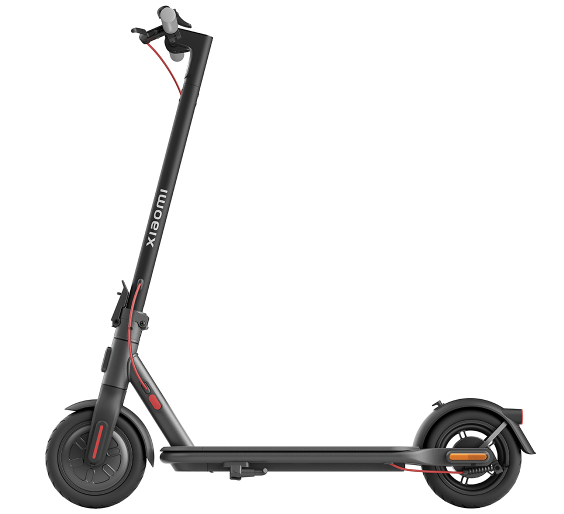Should You Take Creatine? A Comprehensive Guide To Creatine

Table of Contents
What is Creatine and How Does it Work?
Creatine is a naturally occurring organic acid that's primarily found in skeletal muscle. Your body produces some creatine naturally, but you also obtain it from your diet, particularly through red meat and fish. Its primary role is in energy production, specifically in the creation of adenosine triphosphate (ATP), the energy currency of your cells. When your muscles need a quick burst of energy, creatine phosphate donates a phosphate group to ADP (adenosine diphosphate), converting it back into ATP, fueling your muscles for intense activity.
Several types of creatine exist, including creatine monohydrate, creatine HCL, and creatine ethyl ester. However, creatine monohydrate has been the most extensively researched and is considered the most effective and safe form.
- Creatine increases ATP levels: This leads to improved energy availability for short bursts of high-intensity exercise.
- Improved muscle power and strength: Creatine supplementation has been shown to significantly increase both strength and power output.
- Enhanced muscle growth and recovery: Creatine promotes muscle protein synthesis, aiding in muscle growth and faster recovery after workouts.
- Increased high-intensity exercise capacity: This translates to more reps, heavier weights, and improved performance in short, intense activities.
- Different types of creatine exist, but monohydrate is best-researched and most effective: While other forms are marketed, the scientific evidence strongly supports creatine monohydrate's efficacy.
Benefits of Creatine Supplementation
Creatine's benefits extend across various aspects of physical performance and muscle development.
Increased Muscle Strength and Power
Numerous studies demonstrate creatine's effectiveness in increasing muscle strength and power. For example, a meta-analysis published in the Journal of the International Society of Sports Nutrition showed significant improvements in both strength and power in individuals supplementing with creatine. These gains are particularly evident in exercises like weightlifting, sprinting, and jumping. Creatine helps you perform more reps with heavier weight, leading to greater strength gains over time.
Enhanced Muscle Growth and Hypertrophy
Creatine's role in muscle growth is multifaceted. By increasing cellular hydration and ATP availability, it creates an anabolic (muscle-building) environment. This, coupled with resistance training, promotes muscle protein synthesis, leading to increased muscle size (hypertrophy) and overall muscle mass. It's important to note that creatine is most effective when combined with a consistent resistance training program.
Improved Athletic Performance
The benefits of creatine extend beyond the weight room. High-intensity activities, such as sprinting, weightlifting, and high-intensity interval training (HIIT), see significant improvements with creatine supplementation. Athletes in various sports, from team sports to individual power-based activities, can benefit from increased power, strength, and endurance provided by creatine.
Cognitive Benefits (briefly)
While primarily known for its physical benefits, some studies suggest potential cognitive benefits of creatine, such as improved memory and cognitive function. However, more research is needed in this area to draw definitive conclusions.
Potential Side Effects and Risks of Creatine
While generally considered safe, creatine supplementation can cause some mild and temporary side effects:
- Water retention: Creatine draws water into muscle cells, leading to a temporary increase in body weight. This is primarily water weight and not fat gain.
- Potential for weight gain: This is mostly due to the water retention mentioned above.
- Mild gastrointestinal upset: Some individuals may experience nausea or diarrhea, especially when starting creatine supplementation.
- Generally safe for healthy individuals when used as directed: Extensive research has shown that creatine is safe for healthy individuals when taken at recommended doses and with proper hydration.
Concerns about kidney and liver damage have been raised, but large-scale studies have not found a causal link between creatine supplementation and these issues in healthy individuals. However, individuals with pre-existing kidney conditions should avoid creatine. Maintaining adequate hydration is crucial to mitigate any potential side effects.
How to Take Creatine Effectively
To maximize the benefits of creatine, follow these guidelines:
- Loading phase: Many people opt for a loading phase of 20 grams per day for 5-7 days to rapidly saturate muscle creatine stores.
- Maintenance phase: After the loading phase, a maintenance dose of 3-5 grams per day is usually sufficient.
- Consume with carbohydrates and protein: This enhances absorption and utilization.
- Consistency is key for optimal results: Consistent daily supplementation is essential for maintaining elevated creatine levels in your muscles.
Who Should and Shouldn't Take Creatine?
Creatine supplementation is particularly beneficial for:
- Athletes
- Bodybuilders
- Individuals engaging in strength training
Individuals who should avoid creatine include those with:
- Kidney disease
- Other pre-existing health conditions
It is crucial to consult a doctor or healthcare professional before starting any supplement regimen, including creatine.
Conclusion
Creatine monohydrate, when used correctly, can be a beneficial supplement for enhancing athletic performance, increasing muscle growth, and improving strength. While mild side effects are possible, they are generally temporary and manageable. However, it's crucial to understand the potential risks and to consult with your healthcare provider before incorporating creatine into your routine. Remember to consider the information presented in this guide to make an informed decision about whether or not creatine is right for you. Are you ready to explore the potential benefits of creatine supplementation? Start your research today!

Featured Posts
-
 Japans Economic Outlook The Influence Of Its Steep Bond Yield Curve
May 17, 2025
Japans Economic Outlook The Influence Of Its Steep Bond Yield Curve
May 17, 2025 -
 Student Loan Payments And Your Credit Score What You Need To Know
May 17, 2025
Student Loan Payments And Your Credit Score What You Need To Know
May 17, 2025 -
 Comparatif Des Trottinettes Xiaomi 5 5 Pro Et 5 Max
May 17, 2025
Comparatif Des Trottinettes Xiaomi 5 5 Pro Et 5 Max
May 17, 2025 -
 The Chrisean Rock Interview Angel Reeses Fiery Response To Critics
May 17, 2025
The Chrisean Rock Interview Angel Reeses Fiery Response To Critics
May 17, 2025 -
 Angelo Stiller Transfer Liverpool Submits Bid To Stuttgart
May 17, 2025
Angelo Stiller Transfer Liverpool Submits Bid To Stuttgart
May 17, 2025
